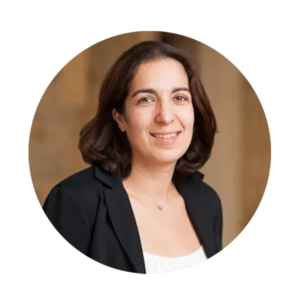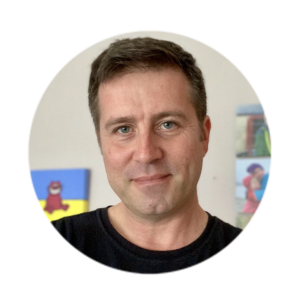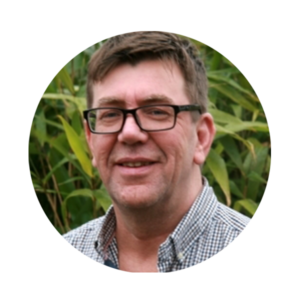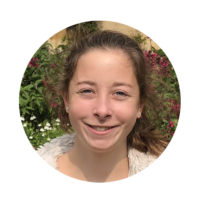This session we are discussing a review of literature of support tools for school staff to respond to CYP self‐harm, with the focus on Aureliane Pierret, Dr. Joanna Anderson, Professor Tamsin Ford, and Dr. Anne‐Marie Burn, CAMH Open Access paper first published 5 December 2020.
Background on the paper
Self‐harm among young people is a major public health concern, and whilst schools are well placed to identify and intervene with students who self‐harm, the literature shows that school staff lack training and confidence in this area. This systematic review investigated the effectiveness, feasibility and acceptability of training interventions and support tools intended to equip school staff with skills and knowledge to adequately respond to students’ disclosure of self‐harm.
About the session
A panel, comprising authors Aureliane Pierret, Dr. Joanna Anderson, independent expert Associate Professor Mina Fazel, and a young person, will discuss the research and its implications. This discussion will be facilitated by Andre Tomlin (@Mental_Elf) who will also be posing the questions you post live online.
All you need to do to sign up to this free event is click here or on the Book Now button at the top of the screen and complete the form that follows. You’ll then receive an email confirmation and a link to the webinar, plus we’ll send you a calendar reminder nearer the time. ACAMH Members attending will be eligible for a CPD certificate.
To get the most from the session we suggest reading the following resources;
- The full paper is available, for free, from the University of Cambridge
- Mental Elf blog
Other resources
- ACAMH Topic Guide
- ACAMH website search results
- The Centre for Suicide Research together with colleagues has produced a new resource on Self-harm for School Staff – Young People who self-harm – New Resource for School Staff Published
- Self-harm: What should school staff be aware of? via HeadTeacher magazine
- Self-harm: How teachers should respond via SecEd
- Coping with self-harm, guide for parents and carers via Charlie Waller
- No Harm Done – Explore our toolkits, videos and guides to getting through self harm and coming out the other side. via YoungMinds
- Five things you can do if someone tells you they are self-harming – via YoungMinds
- Self-Harm in Schools – Anna Freud National Centre for Children & Families
- Understanding Self-Injury/ Self-Harm – Mental Health Literacy
- Self-Harm: Sorting Fact from Fiction – Orygen
About #CAMHScampfire
ACAMH’s vision is to be ‘Sharing best evidence, improving practice’, to this end in December 2020 we launched ‘CAMHS around the Campfire’, a free monthly virtual journal club, run in conjunction with André Tomlin. We use #CAMHScampfire on Twitter to amplify the discussion.
Each 1-hour meeting features a new piece of research, which we discuss in an informal journal club session. The focus is on critical appraisal of the research and implications for practice. Primarily targeted at CAMHS practitioners, and researchers, ‘CAMHS around the Campfire’ will be publicly accessible, free to attend, and relevant to a wider audience.
About the panel (more to be added when confirmed)

Aureliane Pierret is a final year medical student at the University of Cambridge with an interest in psychiatry. Whilst at medical school she has been involved in several research projects in the Department of Psychiatry, most recently working on a systemic review of interventions for school staff to respond more effectively to young people who self-harm. She will be starting an Academic Foundation Programme (AFP) at St Thomas’ Hospital in London this summer, with her research block in psychiatry at the Institute of Psychiatry, Psychology and Neuroscience (IoPPN) at KCL.

I am a Chartered Psychologist with background in clinical neuropsychology and health psychology. After completing my PhD in 2004 I shared my time between clinical and academic work. I am interested in development, evaluation and implementation of interventions to improve mental and physical health outcomes and wellbeing. My current research focus on early identification of mental health difficulties in children and young people and harnessing technology and AI to deliver mental health interventions. I am also interested in evidence synthesis methodology and I am involved in a number of systematic and scoping reviews. Bio and image via University of Cambridge

School-based mental health interventions is the current focus of my research. I am working with Oxford Health NHS Foundation Trust to develop better school-based mental health services for all children across Oxfordshire secondary schools. As part of this we are conducting an Online Pupil Survey for children in years 4 to 13. Schools can sign up here. I previously had an NIHR post-doctoral fellowship to develop a mental health toolbox for schools that any front-line worker, even if they do not have a mental health background, can utilise in the school setting. Refugee mental health needs have been a longstanding interest. I have conducted work on the epidemiology of and the risk and protective factors for mental health problems in refugee children, I am concerned about the psychological impacts of immigration detention and have an active interest in Narrative Exposure Therapy for PTSD. For Children’s Mental Health Week 2019 we have made a 6-part Podcast Series on Mental Health Interventions for Refugee Children aimed at anyone wanting to learn more about the needs of these children. Do listen! My clinical work is as a child and adolescent psychiatrist in the Department of Children’s Psychological Medicine at the Children’s Hospital, Oxford University Hospitals. Bio via Univerity of Oxford

André Tomlin is an Information Scientist with 20 years experience working in evidence-based healthcare. He’s worked in the NHS, for Oxford University and since 2002 as Managing Director of Minervation Ltd, a consultancy company who do clever digital stuff for charities, universities and the public sector. Most recently André has been the driving force behind the Mental Elf and the National Elf Service. *The Mental Elf is a blogging platform that presents expert summaries of the latest reliable research and disseminates this evidence across social media. They have published thousands of blogs over the last 10 years, written by experts and discussed by patients, practitioners and researchers. This innovative digital platform helps professionals keep up to date with simple, clear and engaging summaries of evidence-based research. André is a Trustee at the Centre for Mental Health and an Honorary Research Fellow at University College London Division of Psychiatry. He lives in Bristol, surrounded by dogs, elflings and lots of woodland! Bio via The Mental Elf

I am an information scientist with an interest in making knowledge from systematic research more accessible to people who need it. This means you. I’ve been attempting this in the area of Evidence-Based Health Care since 1995. So far the results have been mixed. For some reason we expected busy clinicians to search databases and appraise papers instead of seeing patients. We also expected publishers to make the research freely available to the people who paid for it. Ha! Hence The National Elf service.

